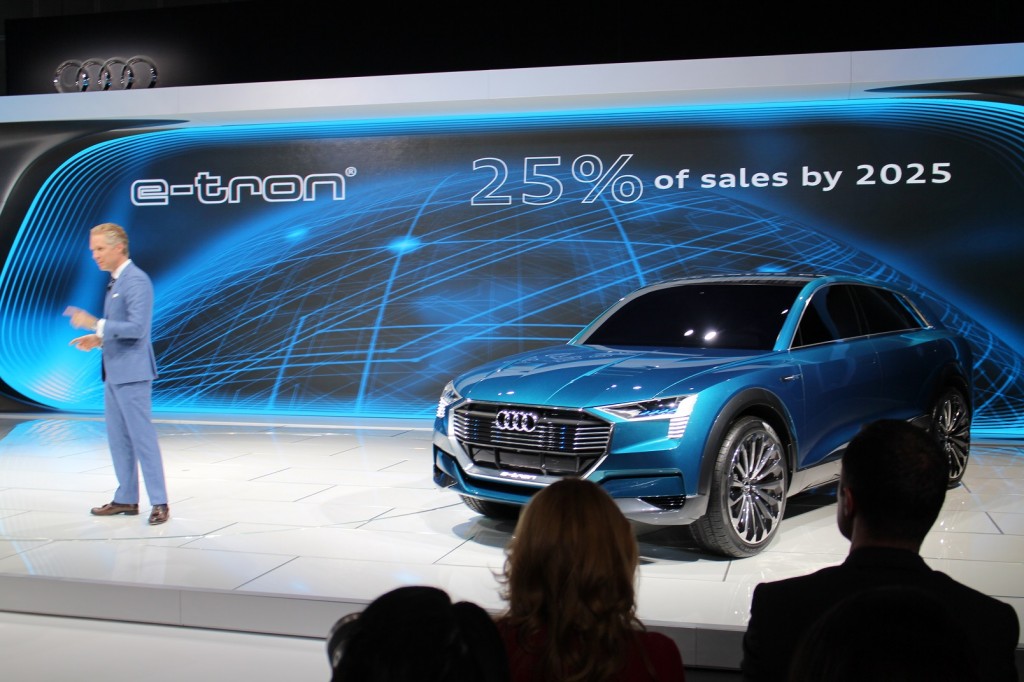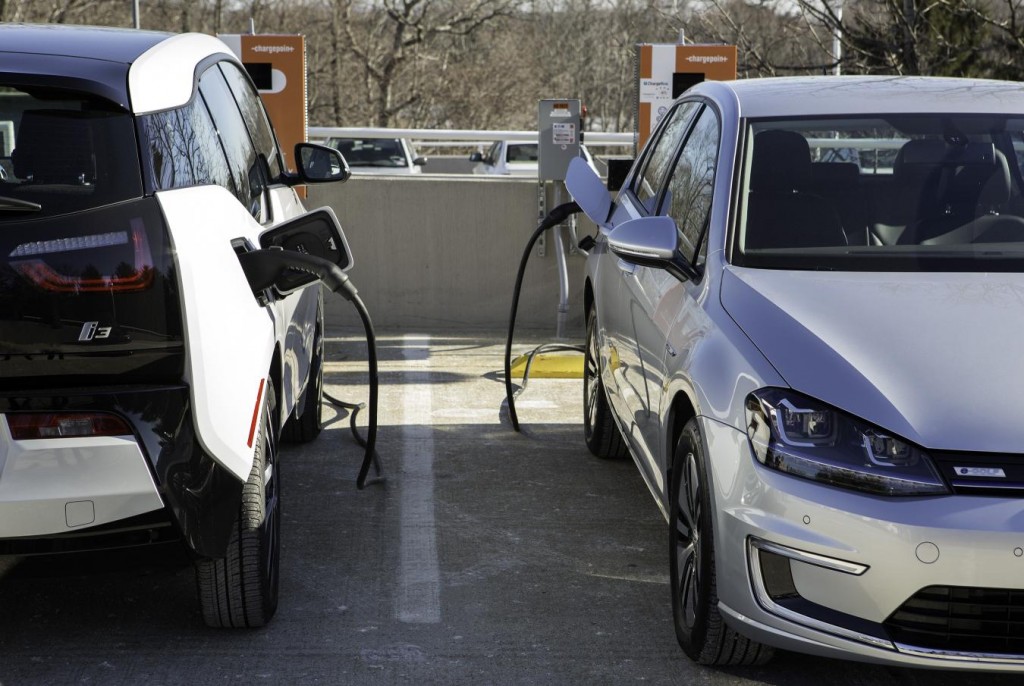With a slew of 200-mile electric cars planned for 2018 and later, the question of how their drivers will be able to make long-distance trips is coming to the fore in a big way.
Silicon Valley electric-car maker Tesla Motors laid out the template with its Supercharger network, which now numbers 327 sites in the U.S. and more than 400 sites outside the country.
Now, the three German carmakers and Ford plan to join together to design and build a network of ultra-fast DC charging stations along Europe's major highways.
DON'T MISS: Germans Vs Tesla In High-End Electric Cars: Will Fast Charging Follow In Time? (Sep 2015)
That network will number 400 sites by 2020, they said in a statement, and is to operate at up to 350 kilowatts—faster than today's Tesla Supercharger stations, which presently run at up to 135 kw.
BMW, Daimler (parent of Mercedes-Benz and Smart), and VW Group's Audi and Porsche brands joined with U.S. maker Ford to announce the joint venture yesterday.
The network will be based on the Combined Charging System (CCS) protocol currently used in a lower-power version by all four makers.

Audi of America president Scot Keogh with Audi e-tron quattro concept, 2015 Los Angeles auto show
The global group that sets software and physicals standards for the CCS specification has been working on upgrades from the current 50-kw maximum spec for many months.
More than a year ago, Audi pledged that a 150-kw DC fast-charging network would be available by the time its 2019 Audi e-tron all-electric crossover utility vehicle launched sometime during 2018.
Porsche followed with a mention of 350-kw fast charging as it unveiled the concept version of its Mission E all-electric sport sedan, expected to launch in 2019.
ALSO SEE: Where Are Electric-Car DC Fast-Charging Stations? Depends On The Car (Oct 2015)
"This will be an important step towards facilitating mass-market battery-electric vehicle adoption," said the partners in their joint statement.
Work on the planned network is to start in 2017.
The 400 planned sites will incorporate "thousands of high-powered charging points" by 2020, they said.

Porsche Mission E Concept - 2015 Frankfurt Auto Show live photos
Fast charging at rates as high as 350 kw could cut the time to recharge an electric-car battery to 80 percent of its capacity from the current 30 minutes or more to as little as 15 minutes.
That would be, in the words of the joint venture, "as convenient as refueling at conventional gas stations."
The four founding auto companies will be equal partners, but other makers will be encouraged to participate in what the group calls a "brand-independent network."
CHECK OUT: As Battery Cost Falls, Fast-Charging Becomes Key Electric-Car Issue (Jan 2014)
Statements by each of the four partners said encouraging things about the future of all-electric vehicles.
But the announcement begs the question of whether plans for a similar network are underway for North America as well.
That answer is notably complicated by the $2 billion for zero-emission vehicle infrastructure that VW Group has committed to fund over 10 years in the wake of its Volkswagen diesel scandal settlement.

BMW i3 and Volkswagen e-Golf electric cars using Combined Charging System (CCS) DC fast charging
Negotiations among VW Group, other carmakers, the powerful California Air Resources Board, and other stakeholders are quietly underway to develop the action plan for the first 2.5-year portion of that infrastructure.
In the end, Volkswagen is leading the development of that plan, most likely on the grounds that if it owns and is responsible for the infrastructure, it has a strong incentive to do it right.
That means BMW, Daimler, and other potential partners like Ford and General Motors will not necessarily be equal partners as they are in Europe.
So we'll chalk up the proposed European network as a potential future win for that region's electric-car drivers, and wait for more information on plans for a similar network in North America.
Which can't come too soon, but will need to be underway well in advance of the new crop of cars hitting the market during 2018.
Over to you, VW and Co.
_______________________________________













